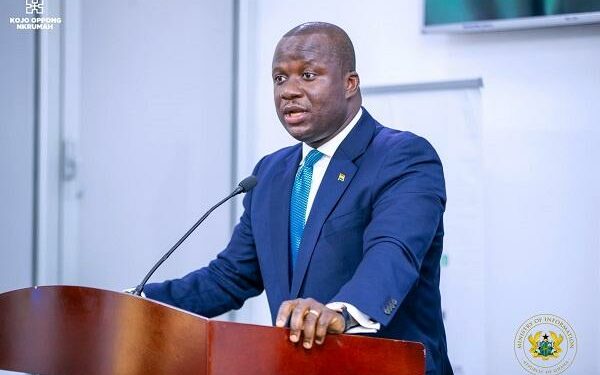Lands Minister agrees to review Lithium deal if…
“I think it’s important for me to point out that the government never rushed into signing this lease, not at all. And the government with the greatest of respect, went through a laborious, long and detailed processes in arriving at signing this lease with Barari DV.
- Advertisement -
Minister for Lands and Natural Resources, Samuel Jinapor, has given a condition based on which the current lithium mining lease agreement between Ghana and Barari DV will be reviewed.
Addressing the media, Civil Society Organisations (CSOs) and mining experts at a Stakeholder Engagement on the Lithium Agreement organised by the Natural Resource Governance Institute (NRGI), the Minister noted that Government is extremely satisfied with the current terms of the agreement as several factors were thoroughly considered in crafting the present agreement.
- Advertisement -
In view of that, the present lithium deal can only be reviewed if CSOs or experts provide concrete or superior proposals that will necessitate a review or change in the current deal.
- Advertisement -
“I think it’s important for me to point out that the government never rushed into signing this lease, not at all. And the government with the greatest of respect, went through a laborious, long and detailed processes in arriving at signing this lease with Barari DV.
“Between now and before the lease is put before Parliament, if there is any concrete proposals that mandate a review, it will be done but in the meantime the Government is fully satisfied with the terms of the agreement in regards to the royalty and carried interest rates because Government went through a laborious process to come to the present agreement,” he stated.
In October 2023, Ghana signed a 15-year lease Agreement with Barari BV Ghana Limited, a subsidiary of Atlantic Lithium Limited for the mining of lithium in Eyowaa in the Central Region.
While government has hailed the terms of the agreement as historic, some civil society actors and individuals have raised concerns. The public discourse around this lithium agreement is understandable as the history of over a hundred years of mining has yielded little benefits for communities and the nation.
The mining lease agreement between Ghana and Barari DV Ghana Limited – subsidiary of Atlantic Lithium – for lithium extraction, is expected to be presented to Parliament for ratification by the first quarter of 2024.
- Advertisement -
The Lands and Natural Resources Minister, Samuel Jinapor, has emphasized that parliamentary ratification is a prerequisite for the lease, as specified in Clause 1E of the agreement, adding that failure to undergo this process would lead to the annulment of the lease.
The lithium mining lease, granted for 15 years to Barari, a subsidiary of Atlantic Lithium Limited, includes a 10% royalty and 13% free carried interest by the state, surpassing the existing 5% and 10%, respectively, for other mining agreements.
Barari DV Ghana Limited is also required to contribute 1% of its revenue to a community development fund for the upliftment of the mining area.
Ghana has unexploited deposits of lithium, iron ore, copper, chrome, nickel, limestone, silica sand/quartz, and mica in addition to its traditional minerals. A report by the Ghana EITI details the critical mineral potential of Ghana; second-largest reserves of bauxite deposits in Africa, significant deposits of iron ore, good quality silica and high-purity, low contaminant lithium scattered across the country.
These opportunities provide positive signals but portend to an even higher degree, fiscal, social, governance and environmental risks that could crowd out any benefits and steer the country on the old path of its traditional minerals.
Mining has been an integral part of Ghana’s economy for at least a century, with gold, diamond, bauxite, and manganese being the commercially producible minerals. On average, the mining sector has contributed 7.7 percent to total Gross Domestic Product (at basic prices) between 2013 and 2021. It also contributed on average, 38.23 percent of total merchandise exports and 16.47 percent to domestic revenues between 2013 and 2021.
According to data from the Minerals Commission, investment inflows into the mining sector has averaged some US$980 million annually over the past decade. The main mineral is gold and Ghana was the leading producer of the yellow mineral in Africa from 2018 until it was overtaken in 2021, a position Ghana regained in 2022. Gold consistently contributes over 90 percent of all mineral revenues annually.
Source:norvanreports
- Advertisement -


